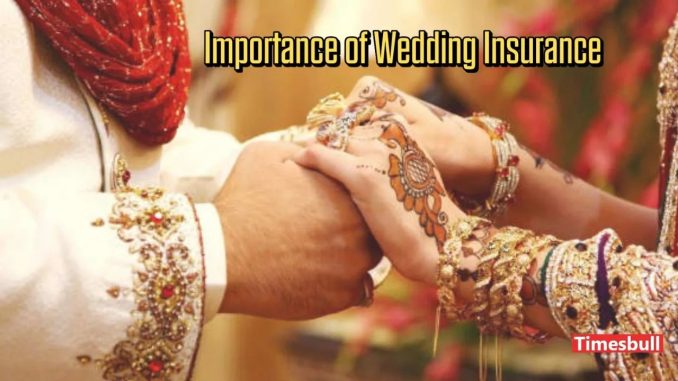
Planning a wedding often feels like navigating a labyrinth of details, from selecting the perfect venue to coordinating florals, catering, and photography. With so many moving parts—and often significant financial investments—couples can find themselves vulnerable to a host of unforeseen setbacks. That’s where wedding insurance comes into play. More than just another line on the budget, wedding insurance offers a safety net that helps protect both the emotional and financial stakes of your big day, ensuring that one unexpected twist doesn’t turn your celebration into a crisis.
At its essence, wedding insurance operates much like other specialty event policies: it transfers the risk of costly, last‑minute disruptions from you to an insurer, in exchange for a relatively modest premium. Consider a scenario in which an outdoor ceremony venue is devastated by a sudden storm the night before the wedding. Without insurance, the cost of securing an alternate site on such short notice could be prohibitive, leaving couples scrambling or forced to postpone. With a comprehensive policy in place, however, expenses related to relocating the event, reprinting invitations with the new location, and accommodating any additional vendor fees can be covered, alleviating the financial pressure at a moment when quick decisions are critical.
Beyond weather‑related woes, wedding insurance typically encompasses vendor mishaps that are all too common in the bridal world. Imagine the caterer falls ill on the morning of your reception, or the photographer’s equipment malfunctions mid‑ceremony. Without a contractual guarantee backed by insurance, couples may find themselves without immediate recourse, especially if vendors refuse full refunds or simply cannot fulfill obligations. Wedding insurance can step in to reimburse non‑refundable deposits or even cover the cost of hiring emergency replacement services. This kind of protection not only keeps the celebration on track but also spares couples from the emotional toll of confronting vendors in crisis mode.
Liability coverage is another cornerstone of most wedding policies. When you’re hosting upwards of a hundred guests—and perhaps serving alcohol—the risk of accidental injury or property damage rises. If a guest slips on a wet dance‑floor or a decorative arch collapses and causes injury, liability insurance can cover legal costs and medical bills that might otherwise fall on the couple or their families. Venues sometimes require proof of liability coverage before finalizing contracts, recognizing that even the most meticulously planned gatherings carry an element of risk.
Timing is also a critical consideration. In many cases, couples find themselves locked into non‑refundable deposits well before the guest list is finalized or travel plans are set. If a key family member falls ill, or a jurisdiction reinstates travel restrictions due to unforeseen public health events, scrambling to recover deposits can be heartbreaking and frustrating. Wedding cancellation or postponement coverage reimburses expenses already paid for services that cannot be rescheduled, from venue fees to videography packages. Essentially, it buys couples the flexibility to adapt to life’s unpredictable turns without bearing the full brunt of sunk costs.
Even smaller elements of the wedding day—attire, jewelry, even wedding gifts—can attract separate coverage clauses. A torn gown two hours before the ceremony or the theft of an heirloom ring from a reception table can quickly overshadow the joy of the moment. Special provisions within many policies allow for the repair or replacement of damaged garments and accessories, as well as coverage for lost or stolen gifts, ensuring that minor disasters don’t become major regrets.
Cost, of course, is always top of mind, and many couples wonder whether wedding insurance is worth the extra expense. When viewed in isolation, premiums may seem like another line item in an already stretched budget. Yet when weighed against the potential cost of rebooking a venue, replacing vendors, or settling liability claims, the price of insurance often represents just a small fraction of a wedding’s total outlay. Moreover, peace of mind—knowing that you’re backed by a contract designed to handle emergencies—can be invaluable in the final weeks leading up to an event often defined by stress as much as excitement.
Couples should also be mindful of policy details and exclusions. Most insurers impose waiting periods before coverage takes effect, and many will not cover incidents resulting from voluntary cancellation—so it’s prudent to lock in insurance early in the planning process. Reading the fine print on what counts as a covered “event” versus a policy exclusion (such as certain acts of God, vendor bankruptcy, or specific high‑risk activities) ensures that expectations align with reality. Consulting with an agent who specializes in event insurance can illuminate these nuances, allowing couples to tailor their coverage to match the scale and complexity of their wedding.
In the end, wedding insurance does more than protect financial stakes—it preserves the spirit of the celebration itself. By shifting the burden of calamities—big or small—to a specialized insurer, couples can focus on what matter most: the promise they’re making and the joy of sharing it with loved ones. In a moment when every detail seems both vital and fragile, wedding insurance offers a reassuring promise of stability, allowing the day to unfold with as little drama as possible—and transforming potential disasters into mere footnotes in a story defined by love and commitment.